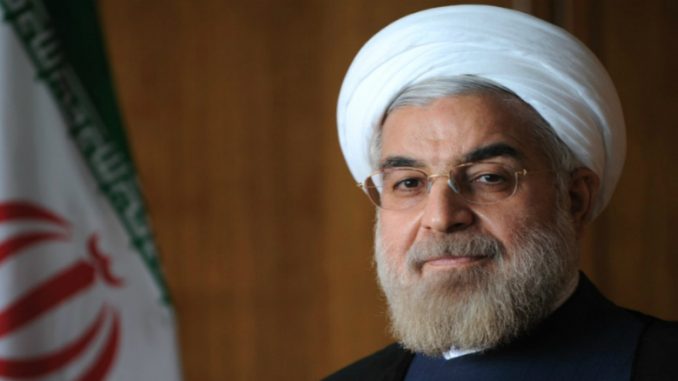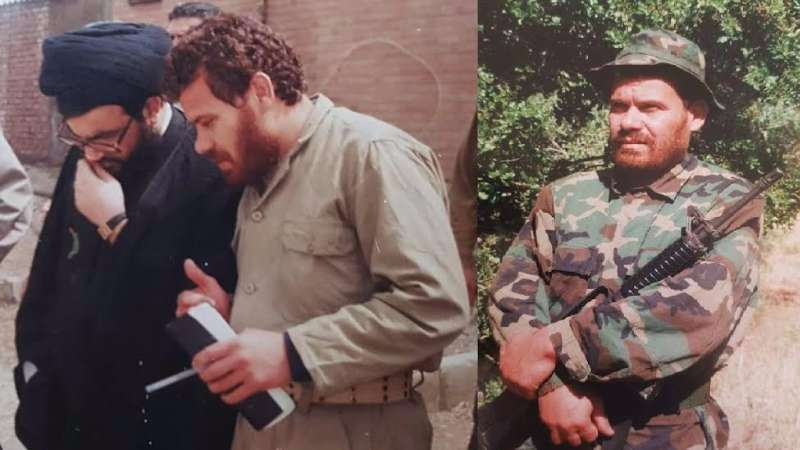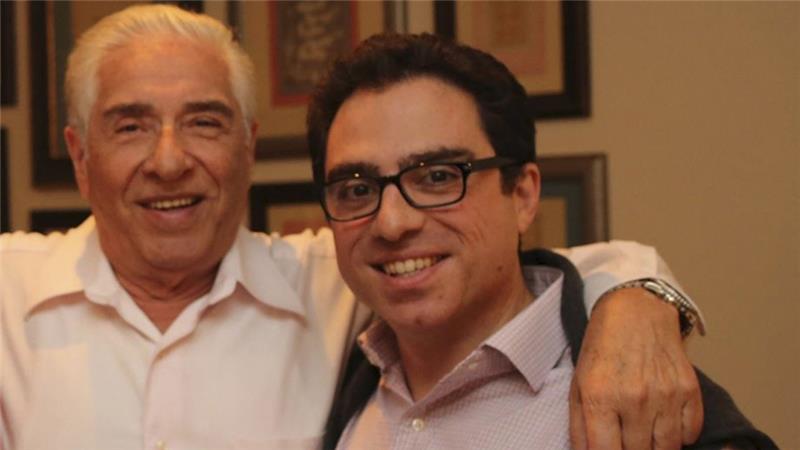
Iranian President Hassan Rouhani plans to visit Kuwait for talks expected to be about bilateral relations, while Iranian officials urged the gulf countries to exploit this opportunity offered by Tehran.
Iranian President Hassan Rouhani will visit Kuwait on Wednesday for talks with Emir Sabah al-Ahmad al-Jaber al-Sabah.
Talks between the two leaders are expected to tackle bilateral relations and regional and international developments, the official said Tuesday on condition of anonymity.
Rouhani’s visit to the Gulf country is part of a regional tour that will also include Oman, the source added.
Rouhani’s visit to Kuwait will be his first since he was elected president in mid-2014.
In a landmark visit last month to Tehran last month, Kuwait’s Foreign Minister Sabah al-Khalid al-Sabah delivered a message on the “basis of dialogue” between Gulf Arab states and Iran and its importance.
Rouhani said Kuwait was among at least 10 countries to have offered to mediate in Iran’s escalating feud with Saudi Arabia.
The Iranian president will meet Oman’s Sultan Qaboos in Muscat on Wednesday before traveling on to Kuwait on the invitation of its ruler, Emir Sheikh Sabah al-Ahmad al-Sabah, Rouhani’s deputy chief of staff for communications, Parviz Esmaeili, was quoted as saying on Monday by state-run Press TV.
Iran’s ambassador to Kuwait, Alireza Enayati, was quoted by ISNA news agency as saying that “on this one-day visit regional issues as well as bilateral cooperation will be discussed”.
“Don’t lose this opportunity”
The six Arab members of Gulf Cooperation Council (GCC), especially Saudi Arabia, accuse Iran of using sectarianism to interfere in Arab countries and build its own sphere of influence in the Middle East. Iran denies the accusations.
At a December GCC summit held in Bahrain, the six-nation council tasked Kuwait with establishing contacts with Iran.
A top Iranian official called on the Gulf Arab states on Tuesday to seize the opportunity of a visit by Iranian President Hassan Rouhani to Oman and Kuwait to improve ties, warning that a chance like this would “pass like a cloud”.
“Rouhani’s regional initiative to accept egional initiative to accept invitation of leaders of Oman and Kuwait signals the need for Islamic friendship and restoration of regional ties,” Hamid Aboutalebi, the Iranian president’s deputy chief of staff, tweeted on Tuesday.
“This regional initiative is an opportunity that our regional friends should seize. Opportunity passes like a cloud. Take advantage of the good opportunity,” he added.
The Gulf states fear that Tehran’s nuclear energy program poses a threat to regional security. Tehran, for its part, says its nuclear program is entirely peaceful.
Tension has mounted between the Gulf and Iran since Saudi Arabia cut diplomatic ties with Tehran early last year after two Saudi diplomatic missions in Iran were attacked by protesters following Riyadh’s execution of a prominent Shia cleric.
Saudi Arabia and Bahrain cut diplomatic relations with Iran after the incident, while Kuwait, Qatar and the United Arab Emirates recalled their envoys in a show of solidarity with Riyadh, but Oman only expressed regret over the attack, highlighting its better ties.
Oman has traditionally resisted Gulf Arab states’ efforts to close ranks against Iran. It helped to mediate secret U.S.-Iran talks in 2013 that led to a historic nuclear deal signed in Geneva two years later.
Saudi-Iran dispute
The past year witnessed Iran’s victory over Saudi Arabia in many dispute points in the region.
In Yemen, Iran backed the Houthi militias who fought against the Saudi-backed government and overthrown it. The Houthis were able to control large areas of Yemen and Saudi launched a campaign against them but couldn’t neutralize their power. The Houthis then made direct attacks against the Saudi land.
“Yemen will be Saudi Arabia’s Vietnam,” says a contemptuous Iranian official. “It is bleeding the Saudis’ military and diplomatic prestige.” If Saudi Arabia agrees to leave the rest of the region, he says, Iran will let it keep Bahrain, the little island state linked by a causeway to Saudi’s eastern coast.
Iran also firmed its grip on Lebanon, when Saad Hariri, who heads Lebanon’s Sunni bloc and is backed by Saudi Arabia, has accepted the post of prime minister under Hezbollah’s choice for president.
The Hariri-led alliance that struggled with Hezbollah for more than a decade, only to see the heavily armed Shi’ite group go from strength to strength in Lebanon and the wider region.
Iran also supported Assad regime by money and fighters to defend his role against the Saudi-backed Sunni rebels, in return for freeing Iran’s hand in Syria to achieve its long-awaited dream. Iran started a demographic change in the Sunni-populated areas in Syria and sought to change the face of the Syrian cities by forcing the Shiite festivals in the heart of Damascus, adding Syria to the list of its controlled areas and making it gradually the 32nd Iranian province.
Egypt’s President, Abdel-Fattah al-Sisi has left the Saudi campaign too. The Saudis supported his military coup in Egypt and funded with billions of dollar during the past years, but he left them and made overtures to Syria, Russia, and even Iran as he sensed Saudi’s weakness.
The next few days will reveal if Rouhani’s visit can help to fix the relation on the two sides of the gulf or it will end with escalated tension if Iran used a similar language to the one in Aboutalebi speech.



